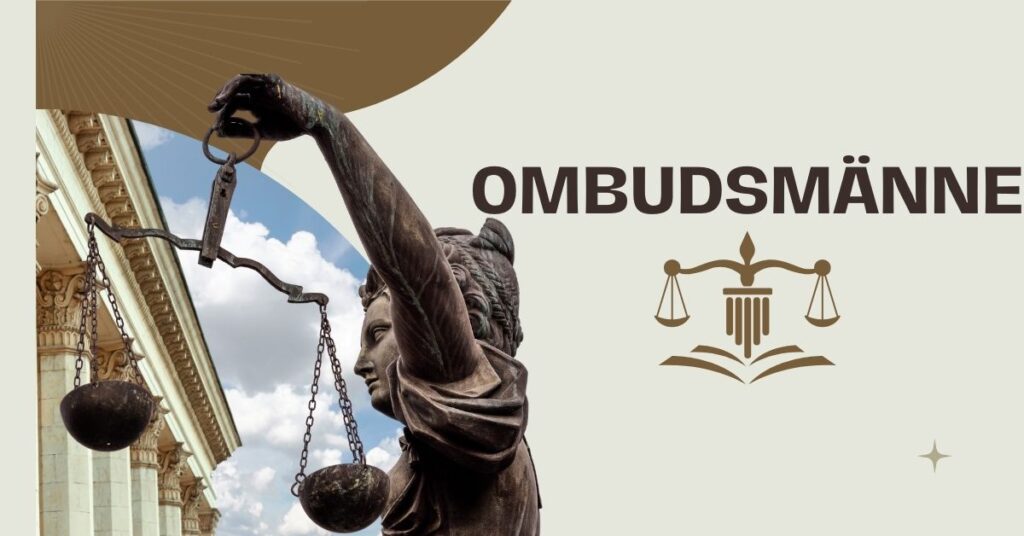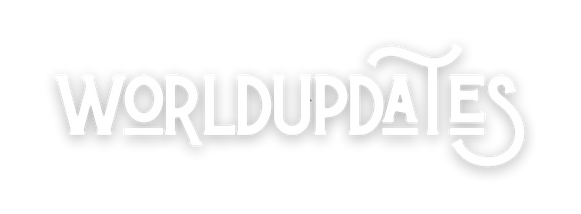Have you ever felt stuck in a dispute with a big company or a government agency, feeling like you have nowhere to turn? It can be frustrating when your voice isn’t heard. This is where a unique type of advocate comes in: the ombudsmänner. While the term might sound a bit formal or unfamiliar, their role is incredibly helpful and designed to support everyday people. An ombudsman, or the plural form ombudsmänner, acts as an impartial investigator who looks into complaints and helps find fair solutions. They are a powerful resource for resolving conflicts without the stress and cost of going to court.
This article will explore the world of ombudsmänner. We will break down exactly what they do, the different types that exist, and how you can use their services to solve problems. Think of them as referees on the field of public and private services, making sure everyone plays by the rules.
Key Takeaways
- Impartial Problem Solvers: Ombudsmänner are neutral third parties appointed to investigate and resolve complaints against organizations.
- Wide Range of Services: They exist in many sectors, including government, banking, healthcare, and education, to handle specific types of disputes.
- Accessible and Free: Most ombudsman services are free for the public, offering an accessible alternative to legal action.
- Power to Recommend: While they often can’t force an organization to act, their recommendations carry significant weight and usually lead to resolutions.
Understanding the Role of Ombudsmänner
So, what exactly does an ombudsman do all day? At its core, the role of ombudsmänner is to provide oversight and accountability. They are an independent office, separate from the organization they are investigating, which ensures they can remain unbiased. When a person has a problem with a service—for example, a billing error from a utility company that customer service won’t fix—they can file a complaint with the relevant ombudsman. The ombudsman’s office will then launch an investigation.
This investigation involves gathering facts from both sides. They review documents, interview people involved, and analyze whether the organization followed its own rules and the law. Their goal is to determine if the complaint is justified and if the person was treated unfairly. The work of ombudsmänner is crucial for maintaining public trust. It gives people confidence that there is a system in place to hold powerful institutions accountable for their actions and decisions.
The History and Origin of the Ombudsman
The concept isn’t new. The first ombudsman office was established in Sweden in 1809. The word “ombudsman” is Swedish and translates to “representative” or “agent.” Originally, this office was created to ensure that government officials and judges acted according to the law. The idea was so successful that it slowly spread across the globe. Today, over 100 countries have some form of ombudsmänner at the national or local level.
The model has adapted over time. Initially focused on government corruption and administrative errors, the role has expanded into the private sector. Now you can find ombudsmänner for banks, insurance companies, and even universities. This evolution shows how valuable the concept of an impartial mediator is in nearly every aspect of modern life. For more interesting global insights, you can often find reports on government functions on sites like worldupdates.co.uk.
The Core Principles of Ombudsmänner
To be effective, all ombudsmänner operate on a few key principles. These principles ensure they are trusted by both the public and the organizations they oversee.
- Independence: They must be free from interference from the government or the body they are investigating. This autonomy is vital for making unbiased judgments.
- Impartiality: An ombudsman does not take sides. They are not an advocate for the complainant or the organization. Their job is to look at the facts and make a fair decision based on the evidence.
- Confidentiality: Complaints are handled discreetly. The identity of the complainant is protected, which encourages people to come forward without fear of retaliation.
- Accessibility: Their services should be easy to access and free of charge for the public. This removes barriers for people who cannot afford legal help.
Different Types of Ombudsmänner
The ombudsman model is incredibly flexible, which is why you can find these offices in so many different fields. The issues you might take to a banking ombudsman are very different from those you’d bring to a university ombudsman. Understanding the different types can help you find the right person to help with your specific problem. Many ombudsmänner specialize in a particular industry, giving them deep knowledge of its rules and common issues. Let’s look at some of the most common types.
Governmental Ombudsmänner
This is the classic form of the ombudsman. Governmental ombudsmänner investigate complaints from the public about government agencies and departments. These can be at the national, state, or local level. For instance, you might file a complaint if you feel you were unfairly denied a public benefit, experienced unreasonable delays from a government office, or were treated poorly by a public official. These ombudsmänner play a critical role in ensuring that government administration is fair, transparent, and responsive to the people it serves. They act as a watchdog, helping to prevent abuses of power and improve public services.
Industry-Specific Ombudsmänner
Many private industries have established their own ombudsman schemes to handle consumer disputes. This is often a way for an industry to regulate itself and maintain customer trust. Here are a few examples:
Financial Ombudsmänner
Financial ombudsmänner deal with complaints against banks, insurance companies, investment firms, and other financial institutions. Common issues include disputes over credit card charges, denied insurance claims, mortgage problems, and investment advice that went wrong. They provide a vital service for consumers who feel they have been wronged by a powerful financial company.
Telecommunications Ombudsmänner
If you have a persistent problem with your phone, internet, or cable provider, a telecommunications ombudsman might be your next stop. These ombudsmänner handle complaints about billing errors, poor service quality, and contractual disputes that you haven’t been able to resolve directly with the company.
Healthcare Ombudsmänner
In the healthcare sector, ombudsmänner help patients navigate complex systems. They can assist with issues like access to care, the quality of treatment, billing problems, and patients’ rights. Some work within a specific hospital (a patient advocate), while others oversee the entire healthcare system in a region.
Organizational Ombudsmänner
Some large organizations, like universities and multinational corporations, have their own internal ombudsman. This person provides a confidential and informal channel for employees or students to raise concerns. Unlike other types, organizational ombudsmänner often focus on resolving conflicts within the organization rather than between the organization and the public. They might mediate disputes between colleagues, address concerns about unfair treatment by a manager, or help someone navigate a complex internal policy. Their goal is to improve the internal culture and resolve problems before they escalate.
The Process: How Ombudsmänner Investigate a Complaint
Filing a complaint with an ombudsman is usually a straightforward process. However, there are a few important steps to follow. The first and most critical rule is that you must try to resolve the issue directly with the organization first. Ombudsmänner are a last resort. You need to give the company or agency a chance to fix the problem before an ombudsman will get involved. Keep records of your calls, emails, and letters, as you will need to show that you made this effort.
Once you have exhausted the organization’s internal complaints process, you can submit your case to the ombudsman. This usually involves filling out a form online or by mail, where you explain the problem and what you have done to try and solve it. You will also need to provide any relevant documents, such as letters, bills, or contracts.

What Happens After You File?
- Initial Assessment: The ombudsman’s office will first review your case to make sure it falls within their jurisdiction. They check if it’s the right type of complaint for their office and if you’ve already tried to resolve it with the organization.
- Investigation: If they accept your case, an investigator will be assigned. They will contact the organization to get their side of the story and request relevant documents. The work of these ombudsmänner is thorough and fact-based.
- Mediation and Negotiation: In many cases, the ombudsman will try to find a solution that both parties can agree on. This might involve mediating a conversation between you and the organization to reach a settlement.
- Recommendation or Decision: If a mutual agreement isn’t possible, the ombudsman will conclude their investigation and issue a formal recommendation or decision. This will state whether they found in your favor and, if so, what the organization should do to put things right.
The Power and Limitations of Ombudsmänner
One of the biggest questions people have is: what power do ombudsmänner actually have? Can they force an organization to follow their recommendations? The answer varies. In most cases, the recommendations from an ombudsman are not legally binding. They cannot force a company to pay you compensation or compel a government agency to reverse a decision.
However, their power comes from their authority and influence. A public report from an ombudsman that criticizes an organization can be very damaging to its reputation. Most organizations want to be seen as fair and reasonable, so they will comply with an ombudsman’s recommendation nearly all of the time. For many public sector ombudsmänner, their findings are reported to the legislature, adding political pressure to comply. So, while they may not have legal teeth, their “bite” comes from public accountability.
When an Ombudsman Can’t Help
It’s also important to know the limitations. Ombudsmänner generally cannot:
- Take on a case that is currently in court.
- Give legal advice.
- Change legislation or government policy (though they can recommend it).
- Investigate matters of national security.
- Force an organization to follow their recommendation.
Understanding these boundaries helps manage expectations and ensures you are using their services for the right reasons.
Comparing Ombudsmänner to Other Forms of Dispute Resolution
How does using an ombudsman compare to other options, like going to court or hiring a lawyer? Each path has its own pros and cons.
|
Feature |
Ombudsmänner |
Courts/Legal Action |
|---|---|---|
|
Cost |
Usually free for the complainant. |
Can be very expensive (lawyer fees, court costs). |
|
Speed |
Generally faster than the legal system. |
Can take months or even years to resolve. |
|
Formality |
Informal and less intimidating process. |
Highly formal with strict rules and procedures. |
|
Outcome |
Recommendations are often not legally binding. |
Decisions are legally binding and enforceable. |
|
Focus |
Finding a fair and reasonable solution for all. |
Determining a legal “winner” and “loser.” |
For many everyday disputes, the services offered by ombudsmänner provide a practical, low-cost, and effective alternative to the legal system.
Conclusion
The role of ombudsmänner is a cornerstone of modern democracy and consumer protection. They are impartial referees who ensure that large organizations—whether public or private—are held accountable for their actions. By providing a free, accessible, and fair system for resolving complaints, they empower individuals and help build trust between the public and the institutions that serve them. From a Swedish innovation to a global standard, the ombudsman model has proven to be an invaluable tool for justice. If you ever find yourself in a dispute with a company or government agency and feel you are not being heard, remember that there may be an ombudsman ready to help you find a fair resolution.
Frequently Asked Questions (FAQ)
Q1: Is the ombudsman service really free?
Yes, for the person making the complaint, the vast majority of ombudsman services are completely free. They are funded either by the government (for public sector ombudsmänner) or by the industries they oversee (for private sector schemes).
Q2: How long does an investigation by ombudsmänner take?
The timeframe can vary widely depending on the complexity of the case. A simple issue might be resolved in a few weeks, while a more complicated investigation could take several months. However, it is almost always faster than going through the court system.
Q3: Do I need a lawyer to file a complaint with an ombudsman?
No, you do not need a lawyer. The process is designed to be accessible to everyone. The ombudsman’s office will guide you through the steps. You simply need to present the facts of your case clearly.
Q4: What happens if I disagree with the ombudsman’s decision?
If you disagree with the final decision, your options may be limited. Since the process is an alternative to the courts, your next step would be to consider legal action. However, you cannot appeal the ombudsman’s decision within the ombudsman’s office itself.
Q5: Can any type of complaint be taken to the ombudsmänner?
No. Each ombudsman office has a specific jurisdiction. For example, a banking ombudsman can only deal with complaints about financial institutions. You must find the correct ombudsman for your specific issue. Their websites clearly outline the types of complaints they can and cannot handle.















Leave a comment